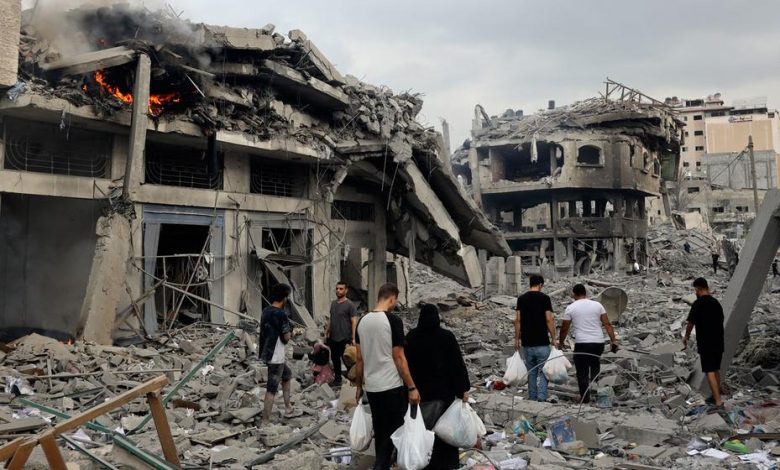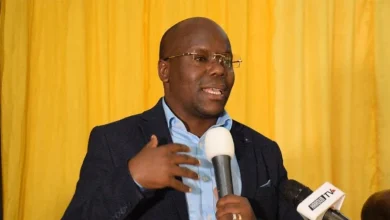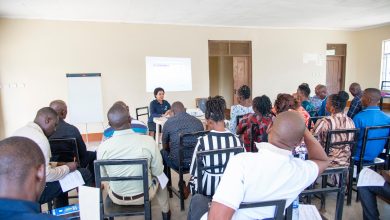Tanzania strengthens humanitarian law education through National Moot Court competition

DAR ES SALAAM: TANZANIA has reaffirmed its commitment to international humanitarian principles through its active participation in the National International Humanitarian Law (IHL) Moot Court Competition, an annual event designed to enhance students’ practical understanding of the laws of armed conflict.
Organised by the International Committee of the Red Cross (ICRC), the competition is a platform for undergraduate law students to simulate real courtroom experiences by arguing fictional legal cases based on the realities of war, human rights protection and international responsibility.
But, what is this International humanitarian law? In a nutshell, it is a set of rules that seek to limit the effects of armed conflict. It lays out the responsibilities of states and non-state armed groups during an armed conflict.
This year’s event brought together eight Tanzanian universities from across the country in an intellectual contest that tested legal reasoning, oral advocacy, teamwork and a sound understanding of International Humanitarian Law (IHL).
The event culminated in a tightly contested final round between TumainiMakumira University from Arusha and the University of Dar es Salaam (UDSM), with UDSM emerging as the national winner.
The UDSM team will go on to represent Tanzania at the prestigious All Africa IHL Moot Court Competition set to take place in Nairobi, Kenya, in November 2025.
Legal Adviser and Head of Mission for ICRC Tanzania, Ms Joyce Buyachamo, highlighted the significance of the competition as a long-term investment in building a generation of competent legal minds who can apply humanitarian law effectively.
“For the past 12 years, we have organised this national competition that brings together students from different law schools. The goal is to take the law of war out of textbooks and into realworld application, where students simulate court proceedings and explore the role of IHL in modern conflicts,” she said.
Ms Buyachamo added that Tanzanian students have shown great enthusiasm for IHL, a subject that has become more important due to the rise in armed conflicts globally.
The competition also supports legal institutions by creating a pool of future lawyers who understand the principles of protecting civilians, combatants and humanitarian workers during warfare.
Legal Officer from the Ministry of Foreign Affairs and East African Cooperation, Dr Ines Kajiru, also underscored the competition’s value in reinforcing legal education and ethical standards among future lawyers.
She noted that the event does not merely reward winners, but it helps participants deeply understand the moral and legal dimensions of war.
“This competition, which is supported by the Red Cross, allows students to present their legal arguments before judges. From the preliminary stage to the finals, the eight universities demonstrated a high level of preparation and ability to solve complex legal problems,” said Dr Kajiru.
According to Dr Kajiru, the subject of IHL is particularly relevant for students because it addresses real-world issues affecting both state and non-state actors during conflict.
ALSO READ: Cavacha: The 1970s dance craze that rocks EAC nations
IHL teaches when it is lawful to strike, who should be protected, the importance of medical neutrality and the consequences of violating humanitarian norms.
“This is a subject that demonstrates how, even during war, human dignity must be preserved. Students who study IHL are not only gaining legal knowledge, but they are also learning how to navigate situations where the line between legality and morality is often tested,” she explained.
Dr Kajiru added that UDSM’s success this year marks another milestone for the country. In previous years, Tanzanian teams have made strong showings at the continental level, with the University of Dodoma (UDOM) winning in 2022 and UDSM reaching the semi-finals in 2024.
“We believe UDSM has a great chance to perform even better this year. With enough time for preparation, unity and learning from past teams, our representatives can compete confidently against other top African universities,” she stated.
Warren Mzava, one of the three students from UDSM who will represent Tanzania in Nairobi, said the team is proud of their achievement and motivated to work harder as they prepare for the continental finals.
“We’re truly excited to have won the national competition. It wasn’t easy because every university came very wellprepared. It’s a big honour for us to represent our country and we’re determined to put in the extra effort to succeed in the finals,” he said.
He emphasised the importance of teamwork and strategic preparation, noting that the level of competition in the All-Africa rounds is expected to be very high.
“We’ll increase our teamwork, discipline and research to make sure we stand out. We know other universities are also preparing intensively, so we need to be at our very best,” he added.
The IHL Moot Court Competition is more than an academic contest, it is a unique educational tool that builds legal competence, promotes a culture of peace and prepares young professionals to engage responsibly with global humanitarian challenges.
It also offers students an opportunity to network, collaborate and receive mentorship from experienced legal practitioners. In a world increasingly affected by war, displacement and human rights violations, the relevance of IHL cannot be overstated.
Moot court platforms such as this not only help law students understand how the rules of war work but also inspire them to be part of a system that promotes accountability, justice and the preservation of human dignity.
Tanzania’s continued participation and leadership in IHL education reflect the country’s broader commitment to strengthening legal systems and promoting peace both nationally and across Africa.





